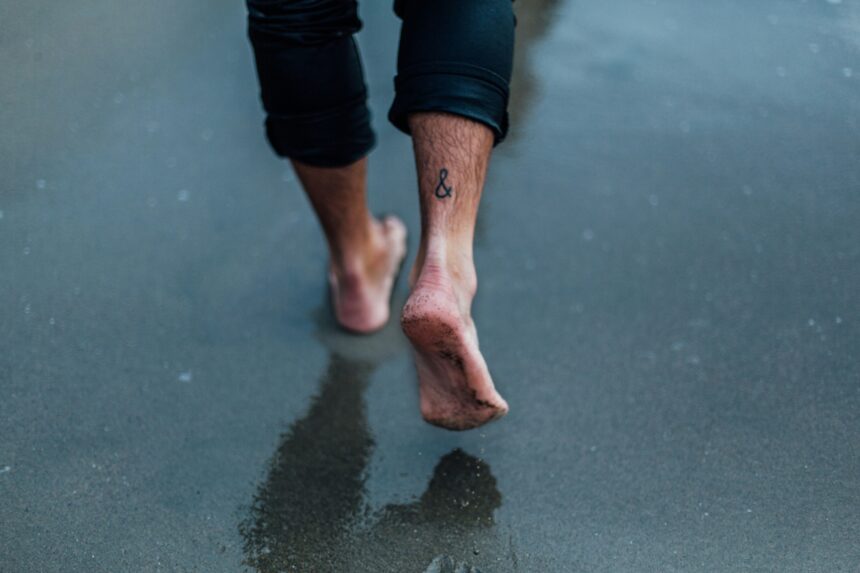Barefoot Grounding Linked to Health Benefits, Studies Suggest
Emerging research indicates that barefoot grounding, also known as earthing, may offer various health benefits, including reduced inflammation, improved sleep, and enhanced mood.
Grounding involves direct physical contact with the Earth’s surface, such as walking barefoot on grass, soil, or sand. The practice is based on the hypothesis that the Earth’s surface carries a negative electrical charge, and direct contact allows the body to absorb electrons, potentially neutralizing free radicals and reducing oxidative stress.
A 2015 review published in the Journal of Inflammation Research found that grounding may improve sleep, normalize cortisol rhythms, reduce pain and stress, and shift the autonomic nervous system from sympathetic to parasympathetic activation. The review also noted increased heart rate variability and reduced blood viscosity among participants.
In a 2018 study involving massage therapists, 16 participants who engaged in grounding reported lower levels of pain, stress, depression, and fatigue after one week of therapy. However, the study acknowledged limitations, including the small sample size and reliance on self-reported data.
Additional research suggests that grounding may contribute to improved immune response and wound healing. A 2020 review in Explore indicated that grounding could reduce inflammation and pain, enhance blood flow, and increase vitality.PMCScienceDirect+1Healthline+1
Gary Brecka, a human biologist and wellness advocate, emphasizes the potential benefits of grounding. In a blog post on his website, he notes that grounding may help neutralize free radicals, reduce inflammation, and improve sleep by resetting the body’s internal circadian rhythm.Gary Brecka
While the scientific community continues to explore the potential health implications of grounding, individuals interested in the practice are advised to approach it as a complementary activity rather than a primary treatment. As with any health-related practice, consulting with healthcare professionals is recommended.

